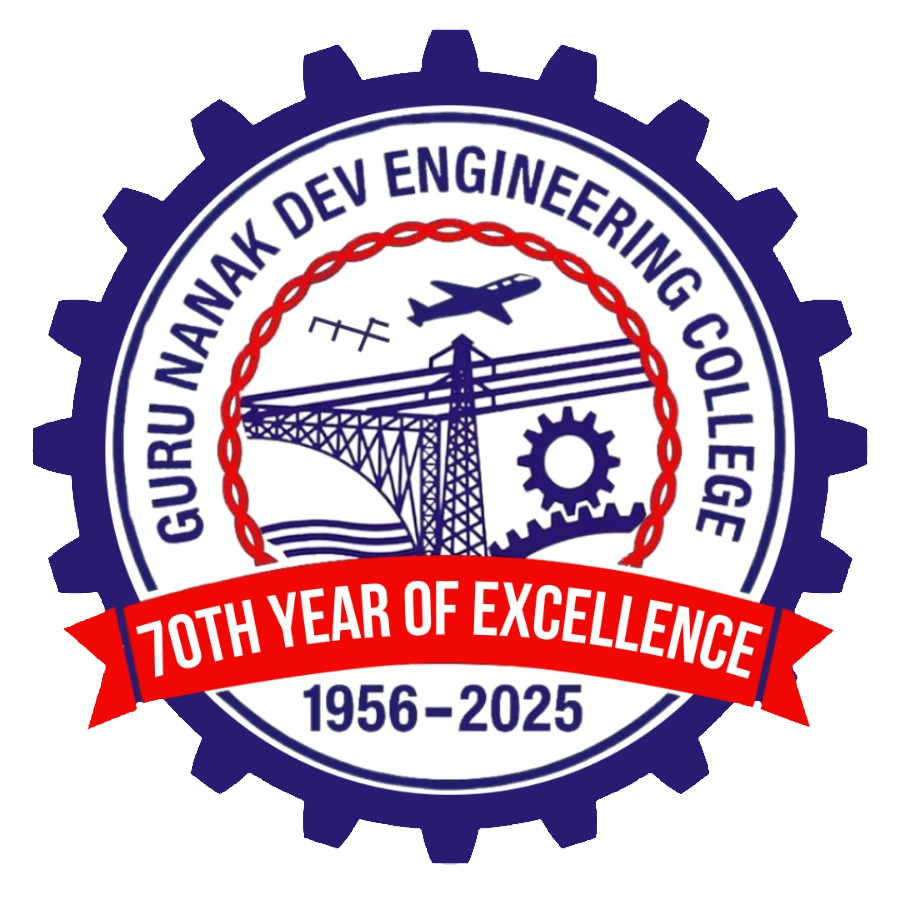Department of Applied Sciences, GNDEC caters to the need of all B.Tech. Programs of the institute. The Program outcomes of all B.Tech. Programs offered at GNDEC are as follows:
1. Engineering knowledge: Apply the knowledge of mathematics, science, engineering fundamentals, and an engineering specialization to the solution of complex engineering problems.
2. Problem analysis: Identify, formulate, review research literature, and analyze complex engineering problems reaching substantiated conclusions using first principles of mathematics, natural sciences, and engineering sciences.
3. Design/development of solutions: Design solutions for complex engineering problems and design system components or processes that meet the specified needs with appropriate consideration for the public health and safety, and the cultural, societal, and environmental considerations.
4. Conduct investigations of complex problems: Use research-based knowledge and research methods including design of experiments, analysis and interpretation of data, and synthesis of the information to provide valid conclusions.
5. Modern tool usage: Create, select, and apply appropriate techniques, resources, and modern engineering and IT tools including prediction and modeling to complex engineering activities with an understanding of the limitations.
6. The engineer and society: Apply reasoning informed by the contextual knowledge to assess societal, health, safety, legal and cultural issues and the consequent responsibilities relevant to the professional engineering practice.
7. Environment and sustainability: Understand the impact of the professional engineering solutions in societal and environmental contexts, and demonstrate the knowledge of, and need for sustainable development.
8. Ethics: Apply ethical principles and commit to professional ethics and responsibilities and norms of the engineering practice.
9. Individual and team work: Function effectively as an individual, and as a member or leader in diverse teams, and in multidisciplinary settings.
10. Communication: Communicate effectively on complex engineering activities with the engineering community and with society at large, such as, being able to comprehend and write effective reports and design documentation, make effective presentations, and give and receive clear instructions.
11. Project management and finance: Demonstrate knowledge and understanding of the engineering and management principles and apply these to one’s own work, as a member and leader in a team, to manage projects and in multidisciplinary environments.
12. Life-long learning: Recognize the need for, and have the preparation and ability to engage in independent and life-long learning in the broadest context of technological change.
Program Specific Outcomes (PSOs)
PSOs of Civil Engineering Department
1. Graduates shall demonstrate sound knowledge in analysis, design, laboratory investigations and construction aspects of civil engineering infrastructure, along with good foundation in mathematics, basic sciences and technical communication.
2. Graduates will have a broad understanding of economical, environmental, societal, health and safety factors involved in infrastructural development with respect to the rural areas, and shall demonstrate ability to function within multidisciplinary teams with competence in modern tool usage.
3. Graduates will be motivated for continuous self-learning in engineering practice and/or pursue research in advanced areas of civil engineering in order to offer engineering services to the society, ethically and responsibly with a special emphasis on rural areas.
PSOs of Computer Science and Engineering Department
1. Graduate will be able to apply theoretical and practical knowledge of computer science for developing software solutions to the real time problems.
2. Graduate will be able to apply and demonstrate the acquired knowledge of emerging trends and contemporary technologies in the field of computer science and engineering.
PSOs of Electrical Engineering Department
1. Graduates will demonstrate their knowledge in effective implementation during their practice of profession of Electrical Engineering with due regard to environment and social concerns.
2. Graduates will demonstrate their knowledge in analysis, design, erection and laboratory experimentation regarding Electrical Engineering.
3. Graduates will be motivated for continuous self learning in engineering practice and pursue research in advanced areas of Electrical Engineering in order to offer engineering services to the society, ethically.
PSOs of Electronics and Communication Engineering Department
1. Design and synthesize solutions for engineering problems pertaining to signal processing and communication systems using appropriate tools and research methods.
2. Develop relevant solutions using domain Knowledge with respect to Design, Analysis and implementation in the area of software engineering and computer networking.
3. Identify and apply domain specific tools for design, analysis, synthesis and validation of VLSI and embedded systems.
PSOs of Information Technology Department
1. An ability to effectively integrate IT-based solutions into the user environment.
2. Possess professional skill set of software design process using open source technologies.
PSOs of Mechanical Engineering Department
1. Will be able to apply the acquired theoretical and practical skills to solve the industrial and research problems in the major streams such as thermal, design, manufacturing and industrial engineering.
2. Will be able to take up their career in government, public, private sector industrial/research organizations, start enterprises and pursue higher studies with high regard for social and professional ethics.
